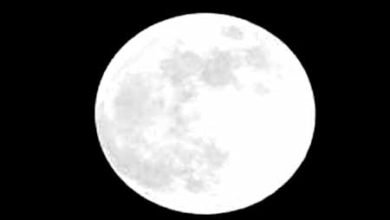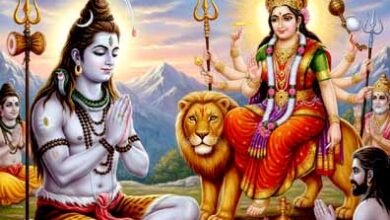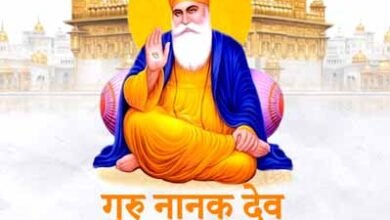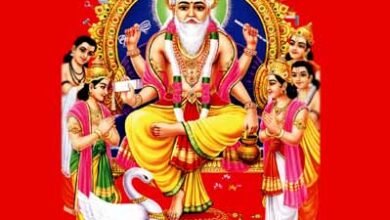
पोंगल…
हर वर्ष 14-15 जनवरी को उत्तर भारत में मकर संक्रांति, पंजाब और हरियाणा राज्यों में लोहड़ी और दक्षिण भारत में पोंगल पर्व मनाया जाता है. हर वर्ष 14-15 जनवरी को किसानों का पर्व बड़े ही धूमधाम और हर्षोल्लास के साथ मनाया जा रहा है.
उत्तर भारत की तरह दक्षिण भारत में भी सूर्योपासना का महपर्व पोंगल की शुरुआत हो चुकी है. पोंगल भी चार दिवसीय पर्व है. चार दिवसीय महापर्व का हर दिन के रंग अनूठे गतिविधियाँ और परंपराएँ होती हैं, जो इसे विशेष बनाती हैं. इस हर्षोल्लास भरे माहौल में, लोग पोंगल पकवान तैयार करते हैं, घरों को सजाते हैं और आपस में मिलते-जुलते हैं. पोंगल पर्व की शुरुआत 13 जनवरी से शुरू हो गई है.
पोंगल पर्व के पहले दिन घरों की साफ़-सफाई कर पुराने अनुपयोगी वस्तुओं को आग में जलाया जाता है. यह दिन नवजीवन की शुरुआत का प्रतीक माना जाता है. इसे भोगी पोंगल कहा जाता है.
पोंगल पर्व के दूसरे दिन भगवान् सूर्य की पूजा के लिए पगल ( मिट्टी के बर्तन में नये धान से तैयार चावल, मूंग दाल और गुड से) बनाई जाती है और इसे भगवान् सूर्य को प्रसाद रूप में पगल व गन्ना अर्पण किया जाता है. इसे सूर्य पोंगल कहा जाता है.
पोंगल पर्व के तीसरे दिन गौ -धनों व बैलों की पूजा की जाती है. इस दिन गौ -धनों व बैलों को आकर्षक ढंग से सजा कर पूजा कर विशेष व्यंजन खिलाये जाते हैं. यह किसानों के जीवन में पशुओं के महत्व को दर्शाता है. इसे मट्टू पोगल कहा जाता है.
पोंगल पर्व के चौथे और आखरी दिन इस दिन घर को आम के पलल्व और नारियल के पत्ते से दरवाजे पर तोरण बनाया जाता है साथ ही महिलाएं इस दिन घर के मुख्य द्वारा पर कोलम यानी रंगोली बनाती हैं. लोग एक-दूसरे से मिलते हैं, घूमने जाते हैं, और अपने बड़ों का आशीर्वाद लेते हैं. यह दिन सामाजिक और पारिवारिक संबंधों को मजबूत करने का दिन है. आखरी दिन के पोंगल को कानुम पोंगल के नाम से जानते हैं.
पोंगल के अवसर पर पारंपरिक नृत्य और संगीत कार्यक्रम होते हैं, जिनमें भरतनाट्यम, कथकली, और अन्य लोक नृत्यों का प्रदर्शन किया जाता है. कुछ स्थानों पर शिव और गंगा की विशेष पूजा की जाती है. वहीं, ग्रामीण इलाकों में विभिन्न खेल और प्रतियोगिताएँ आयोजित की जाती हैं, जैसे कि जलीकट्टू (बैल दौड़).
पोंगल सिर्फ एक धार्मिक त्योहार नहीं है, बल्कि यह एक सांस्कृतिक उत्सव भी है जो तमिल संस्कृति और परंपराओं की गहराई को दर्शाता है. इसका हर पहलू कृषि और परिवार की महत्ता को उजागर करता है.
========== ========= ===========
Pongal…

Every year on 14-15 January, Makar Sankranti is celebrated in North India, Lohri in Punjab and Haryana, and the Pongal festival is celebrated in South India. The festival of farmers is celebrated with great pomp and gaiety on this day.
Like North India, Pongal, the festival of Surya Pooja, has begun in South India, too. Pongal is also a four-day festival. Each day has its own colours, unique activities, and traditions that make it special. In this joyous atmosphere, people prepare Pongal dishes, decorate their homes, and mingle with each other. The Pongal festival began on 13 January.
On the first day of the Pongal festival, houses are cleaned, and old useless items are burned in the fire. This day is considered a symbol of the beginning of a new life. It is called Bhogi Pongal.
On the second day of the Pongal festival, Pongal is prepared (rice prepared from new paddy, moong dal and jaggery in an earthen pot) for the worship of Lord Surya and Pongal and sugarcane are offered to Lord Surya as prasad. This is called Surya Pongal.
On the third day of the Pongal festival, cows and bulls are worshipped. On this day, cows and bulls are decorated attractively and are worshipped and fed special dishes. This shows the importance of animals in the lives of farmers. This is called Mattu Pongal.
On the fourth and last day of the Pongal festival, a toran is made on the door of the house with mango leaves and coconut leaves. Women also make kolam i.e. rangoli on the main door of the house on this day. People meet each other, go for a walk, and take blessings from their elders. This day is a day to strengthen social and family relations. The Pongal of the last day is known as Kanum Pongal.
Pongal is celebrated with traditional dance and music programs, including Bharatanatyam, Kathakali, and other folk dances. In some places, Shiva and Ganga are worshipped. In rural areas, various sports and competitions are organized, such as Jallikattu (bull race).
Pongal is not just a religious festival, but it is also a cultural celebration that reflects the depth of Tamil culture and traditions. Every aspect of it highlights the importance of agriculture and family.





